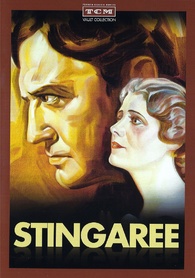The Australian Western, also referred to as the "Meat-Pie Western" or "Kangaroo Western," differs from most Western subgenres in that it does not have its origins the traditional American Western. This subgenre is born from Australian history, as opposed to American. It is by mere coincidence that the two bear such striking similarities. They both have almost identical settings and a long history of pioneers, cattle herding, ranching, expansion into harsh territories, troubled relations with indigenous peoples, and outlaws. Different variations of Western stock characters even show up like the Australian outlaws referred to as "bushrangers." This term encompasses almost any criminal in the Australian outback, from bank robbers to escaped convicts. Australian Westerns with bushranger protagonists are commonly referred to as "Bushranger Films." Another variation of a stock character found in this subgenre is the indigenous peoples of the continent: the Aboriginal Australians. Like the Indigenous People of America, Aboriginal Australians are a marginalized group that reflect a shameful part of the country's past. In all other regards, they carry their own unique culture and traditions.
The Story of the Kelly Gang could be considered the first Australian Western, and, because of its alleged runtime, is considered the world's full-length narrative feature film. Unfortunately, the film is now mostly lost and all that remains is about 20 minutes of different portions of the original film. As the title suggests, the film covers the story of infamous bushranger Ned Kelly and his gang. The film is the combined efforts of the Tait Brothers: Charles, John, and Nevin. They were Australian entrepreneurs that focused on entertainment such as theater, live music, and the newly emerging technology of film. Along with additional help from the rest of the Tait family, they financed, produced, and screened the film all across the continent.
The Australian Western film The Overlanders is released. The film starred Chips Rafferty who received international acclaim for his role as a Western star. Rafferty had previously received widespread fame from his role in the Australian war film Forty Thousand Horsemen. However, it was this film that established him as a star of classic Australian Westerns, in particular. Director and co-writer of the film Harry Watt described Rafferty as an "Australian Gary Cooper." This comparison is well-earned, for Rafferty acquired a popular onscreen persona in both Western and non-Western cinema with his charming looks, rugged demeanor, and indelible acting.
David Gulpilil stars in the film The Tracker. His performance in the film wins him the Award for Best Actor from the Australian Academy of Cinema and Television Arts. The film is an Australian Western that depicts the Australian practice of "Aboriginal tracking," and Gulpilil stars as the titular tracker. Gulpilil's acting career started with the 1971 film Walkabout and continued for decades until his passing in 2021. He is likely the most recognized and popular Indigenous Australian actor on an international scale. Throughout his career, he starred in a number of Australian Western films such as Mad Dog Morgan (1976), The Proposition (2005), Australia (2008), and Goldstone (2016), and some Australian Western television shows like Luke's Kingdom (1976), The Man from Snowy River (1994).
 Stingaree
In 1874 Australia, debonair outlaw Stingaree, aided by his sidekick, Howie, uses his wily charm to take what he wants from the ruling class, with or without permission. When he meets composer Sir Julian Kent, who₂s on his way to see a promising opera singer Mrs. Clarkson, Stingaree abducts Kent and decides to take his place at the audition. He quickly realizes the real talent is Clarkson₂s servant, Hilda and not Mrs. Clarkson, so he promises Hilda that he'll make her a star.
Stingaree
In 1874 Australia, debonair outlaw Stingaree, aided by his sidekick, Howie, uses his wily charm to take what he wants from the ruling class, with or without permission. When he meets composer Sir Julian Kent, who₂s on his way to see a promising opera singer Mrs. Clarkson, Stingaree abducts Kent and decides to take his place at the audition. He quickly realizes the real talent is Clarkson₂s servant, Hilda and not Mrs. Clarkson, so he promises Hilda that he'll make her a star.